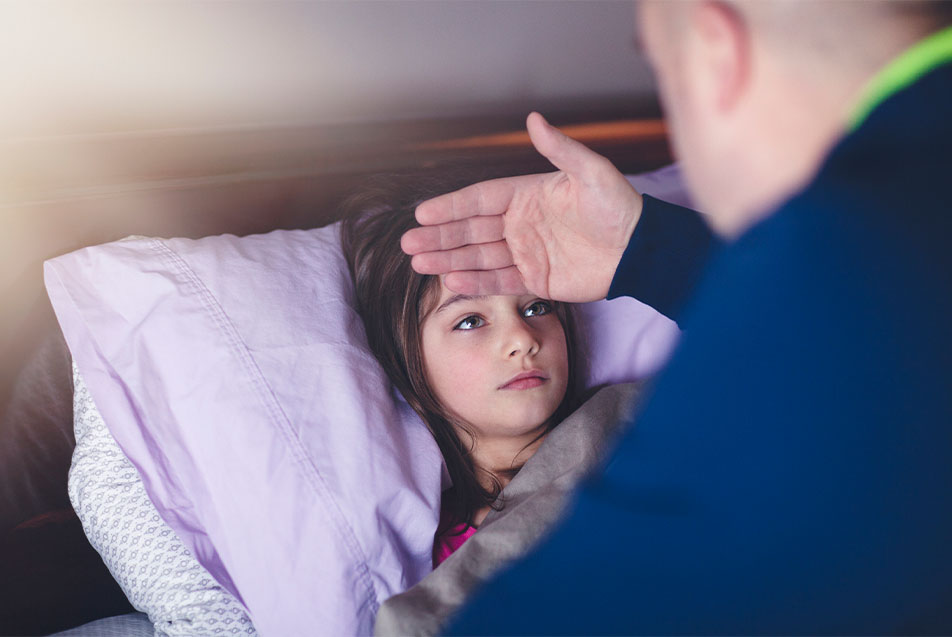
This post was written by Reshma Khatri, MD, PPG – Pediatrics.
Viral infections are common in kids, and range anywhere from a standard cold (Rhinovirus) that presents with cough, congestion and sore throat, to a stomach bug that brings self-limited vomiting and diarrhea for a few days, to more serious infections like COVID or influenza. The key for parents is to know the proper methods for addressing symptoms and managing discomfort so your little one can get back to their classroom and activities.
Treatment
It’s important for parents to know that most viral infections require symptomatic treatment, meaning that, while there are many things they can do at home to help with their child’s recovery, antibiotics are not going to help treat the virus.
Instead, caregivers should leverage the following strategies for alleviating symptoms and discomfort:
Hydration – Offer your child plenty of liquids. You may use Pedialyte®, which has glucose and electrolytes, and is available over-the counter, to replenish body fluids. This is especially helpful if a child has loose stools, vomiting or a decreased intake of fluids due to a sore throat or pain. Encourage a bland diet and clear liquids in small, frequent amounts if the child is vomiting or has pain with swallowing.
Pain and fever reducers – Parents can use Tylenol® (acetaminophen) or Motrin® (ibuprofen) to help with fever or pain. Make sure that you check the label and administer proper dosing. Motrin should only be given to babies who are 6 months or older.
Throat lozenges and gargling – A throat lozenge or cough drop might help manage a sore throat in older kids. Again, be sure to read the packaging and follow the instructions. Gargling salt water intermittently can also be helpful for children experiencing throat discomfort.
Honey – If your child is 1 year or older, honey can help suppress their cough and soothe a sore throat. Additionally, honey is believed to have anti-viral properties.
Nasal saline – Nasal saline can serve as a decongestant for a stuffy nose. This product is available over-the-counter and can be used every 4 to 6 hours, as needed.
Humidifier – Putting a humidifier in the child’s room can help decrease their cough and nasal congestion. This will also help moisturize your child’s skin if they are experiencing any dryness or rash.
Rest – Encourage plenty of sleep and less screen time. This helps their body preserve energy and fight off the infection.
It’s also important to teach your children to maintain precautions so they limit the spread of their infection to others. This would include covering their cough with their elbow, practicing good hand hygiene through washing and sanitizing, and keeping their distance, when possible.
While most viral infections will improve with symptom control, there are some that require additional treatment, which can mean prescription medication. If your child is not improving with home treatment, seems to be worsening or the intensity of symptoms concerns you at any point, please consult your health care provider. In addition, if you have a premature baby, unvaccinated child or child with chronic conditions, consider consulting with your healthcare provider earlier on in the course of the illness for better guidance in care.




